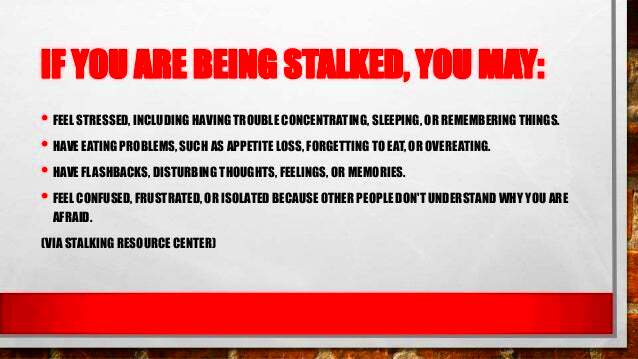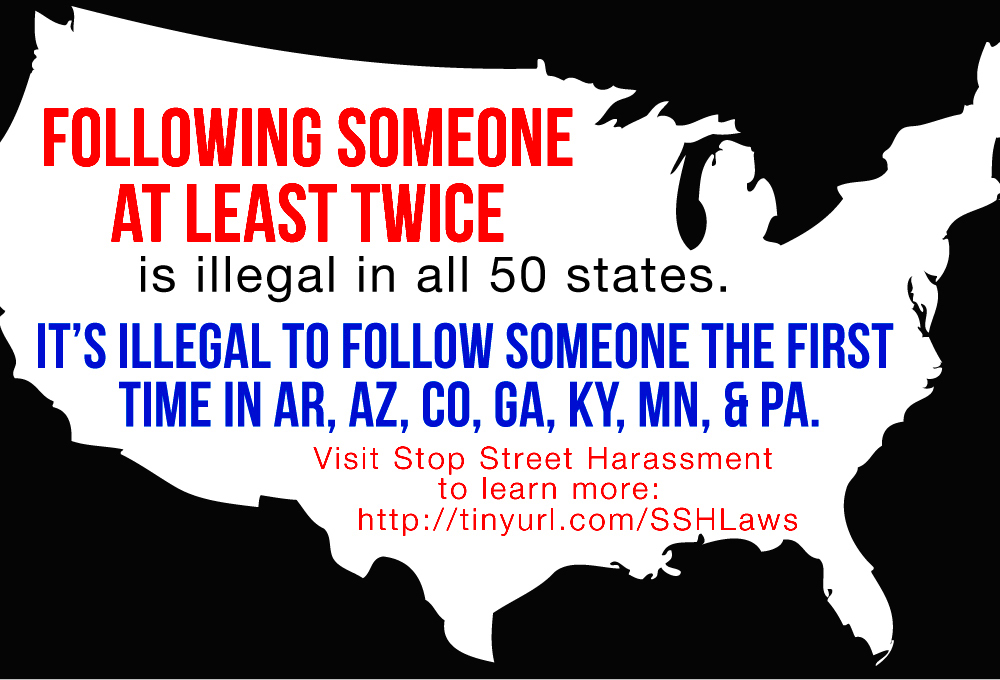Arizona’s Harassment and Stalking Prevention Laws
In Arizona harassment and stalking are treated with utmost seriousness and the state has put in place strong laws to safeguard individuals against these harmful actions. These laws are designed to create a secure setting where people can go about their lives without the worry of being pursued or monitored. The impact of harassment and stalking on victims can be profound both emotionally and psychologically and Arizonas legal system aims to tackle these concerns in a thorough manner.
The laws in Arizona aim to take measures to safeguard individuals and provide them with options when facing challenging circumstances. Familiarizing yourself with these laws can assist you in maneuvering through the system more effectively and obtaining the support you require if you or someone close to you is dealing with harassment or stalking issues.
Defining Harassment and Stalking in Arizona

In Arizona the terms harassment and stalking hold distinct legal meanings that are essential for grasping the application of the law. Lets break it down.
- Harassment: This refers to a pattern of behavior intended to annoy, alarm, or cause emotional distress to another person. It can include threats, repeated unwanted communication, or actions meant to provoke or upset someone.
- Stalking: Stalking involves a more persistent and targeted behavior, where the perpetrator engages in a course of conduct directed at a specific person that causes fear for their safety. This includes repeated following, surveillance, or unwanted contact.
While these actions may seem nuanced their impact on victims can be profound. With personal safety and mental health hanging in the balance it is crucial for Arizonas legal framework to establish clear definitions and safeguards.
Key Legal Protections Against Harassment

Arizona provides various safeguards for people dealing with harassment. These safeguards play a role in helping victims pursue justice and find security. Here’s a summary of the important legal protections in place.
- Restraining Orders: Victims of harassment can obtain restraining orders that legally prohibit the harasser from contacting or coming near them. This helps create a physical and psychological barrier between the victim and the perpetrator.
- Civil and Criminal Penalties: Arizona law provides for both civil and criminal penalties for harassment. Criminal charges can lead to fines, probation, or even jail time, while civil actions can result in monetary damages and court orders to cease the behavior.
- Emergency Orders: In urgent situations, victims can request emergency orders from the court that offer immediate protection while awaiting a more permanent resolution.
These safeguards aim to support the short term and lasting requirements of survivors. They go beyond being mere legal solutions; they play a crucial role in reinstating feelings of safety and fairness.
How Arizona’s Laws Address Stalking Behaviors
Stalking is a serious issue that involves invading someone privacy in a way that can make them feel threatened and unsafe. In Arizona there are laws in place to protect and support individuals who are victims of stalking. These laws understand that stalking is not a one time event but rather a recurring behavior that instills real fear and discomfort.
Arizona’s approach to stalking includes:
- Definition and Scope: Arizona law defines stalking as a series of actions directed at a specific person that instills fear for their safety. This includes repeated following, surveillance, and unwanted contact.
- Stalking Orders: Victims can seek a stalking order of protection, which legally prohibits the stalker from contacting or approaching them. This order is essential for creating a legal barrier and ensuring the victim’s safety.
- Enhanced Penalties: Stalking is treated with severity under Arizona law, and repeat offenders or those who escalate their behavior can face enhanced penalties. This includes stricter sentencing guidelines to address the serious nature of their actions.
These actions go beyond being mere legal procedures. They play a crucial role in safeguarding victims and allowing them to live in peace. The emphasis is on providing support and implementing measures to prevent any future harassment.
Legal Consequences for Harassment and Stalking
In Arizona the legal repercussions for harassment and stalking aim to discourage would be wrongdoers and deliver justice to victims. Familiarizing oneself with these repercussions can aid people in grasping the seriousness of these crimes and the safeguards offered to them.
The legal repercussions include:
- Criminal Penalties: Harassment and stalking can lead to criminal charges. Depending on the severity, offenders might face fines, probation, or imprisonment. For severe cases, especially those involving repeat offenses, the penalties can be significantly harsher.
- Civil Liability: Victims may also pursue civil lawsuits against perpetrators. This can result in monetary damages for emotional distress and other related losses. Civil cases are a way for victims to seek compensation for the harm they’ve suffered.
- Protective Measures: Courts can issue protective orders that prevent offenders from contacting or approaching victims. Violating these orders can lead to additional legal consequences, including arrest and further charges.
The legal repercussions play a role in dealing with the damage inflicted by harassment and stalking. They demonstrate a dedication to safeguarding victims and ensuring that wrongdoers are responsible for their behavior.
Filing a Harassment or Stalking Complaint in Arizona
Submitting a complaint about harassment or stalking is an important action for victims looking to safeguard themselves and pursue justice. Although the procedure is relatively simple it entails crucial steps to ensure that the legal system responds to the matter appropriately.
Here’s a helpful resource to assist you in navigating through the procedure.
- Gather Evidence: Documenting incidents of harassment or stalking is essential. Keep a detailed record of dates, times, and descriptions of each occurrence, along with any communication from the perpetrator.
- File a Report: Victims should report the behavior to local law enforcement. This report is the first official step in addressing the issue legally and will be used to support any protective measures or legal actions.
- Seek Legal Advice: Consulting with an attorney who specializes in harassment and stalking cases can provide valuable guidance. They can help you understand your rights, file necessary documents, and navigate the legal system effectively.
- Request a Protective Order: If needed, you can request a restraining or protective order from the court. This order can provide immediate protection and set legal boundaries to prevent further contact from the perpetrator.
By following these steps, you can enhance your chances of obtaining the protection and fairness you rightfully deserve. While the journey may appear overwhelming, there are resources at hand to assist you in navigating every phase and prioritizing your safety and welfare.
Seeking Protection Orders: What You Need to Know
Getting a protection order is an important way to protect yourself from harassment or stalking. It’s more than just a legal procedure; it’s a strong way to regain your feeling of safety and tranquility. In Arizona protection orders can offer support and set clear legal limits between you and the person causing harm.
Here’s what you should be aware of when it comes to obtaining a protection order
- Types of Protection Orders: In Arizona, there are several types of protection orders:
- Order of Protection: This is typically used in cases of domestic violence or threats. It can prohibit the abuser from contacting or coming near you.
- Injunction Against Harassment: This is used for non-domestic situations where someone is repeatedly harassing you. It can prevent the harasser from contacting you or coming near your home or workplace.
- Injunction Against Stalking: This is specifically for situations where someone is stalking you. It can impose strict restrictions on the stalker’s behavior.
- Filing the Petition: To request a protection order, you need to file a petition with the court. This involves detailing the incidents that led to your request and providing any evidence or documentation you have.
- Attending the Hearing: After filing, a court hearing will be scheduled where both you and the respondent (the person you’re seeking protection from) can present your sides of the story. It’s important to present clear evidence and stay calm during this process.
- Enforcement: Once granted, the protection order is enforceable by law. If the respondent violates the order, you can report this to the police, who can take legal action against them.
Obtaining a protection order goes beyond safeguarding yourself legally. Its about standing up for your own well being. It’s a powerful move to prioritize your safety and security.
Resources and Support for Victims
For those who have been targeted by harassment or stalking having access to assistance and support can greatly impact their situation. Its essential to understand that you are not facing this alone and there are resources available to help you navigate through this difficult period.
Here are some helpful resources and support alternatives for you:
- Victim Advocacy Services: Organizations like the Arizona Coalition to End Sexual and Domestic Violence offer support services, including counseling, legal assistance, and advocacy. These services can help you navigate the legal system and provide emotional support.
- Legal Assistance: Many non-profit organizations and legal aid services offer free or low-cost legal assistance for victims. They can help you understand your rights, file necessary legal documents, and represent you in court.
- Hotlines and Support Groups: The National Domestic Violence Hotline and local support groups can provide immediate assistance and connect you with resources tailored to your needs. These hotlines offer confidential support and guidance.
- Safety Planning: Developing a safety plan is essential for protecting yourself. This can include changing your daily routines, securing your home, and having a list of emergency contacts. Many organizations offer guidance on creating a personalized safety plan.
Discovering the support can truly change everything. Its all about creating a support system that assists you in taking back control of your life and finding resilience during challenging moments.
FAQ about Harassment and Stalking Prevention Laws
Navigating the complexities of harassment and stalking prevention laws can be quite challenging. To shed light on some common queries here’s a helpful FAQ that tackles questions regarding these laws in Arizona.
- What is the difference between harassment and stalking? Harassment involves a pattern of behavior meant to cause distress or alarm, while stalking is a more severe form of repeated, targeted behavior that instills fear for safety.
- Can I get a protection order without a police report? While a police report can strengthen your case, it is not always required. You can file a petition for a protection order based on your experiences and evidence alone.
- How long does it take to get a protection order? The process can vary, but emergency protection orders can be issued quickly. A full hearing for a more permanent order may take a few weeks, depending on the court’s schedule.
- What happens if the protection order is violated? If the respondent violates the protection order, you should report it to the police immediately. Violations can result in legal consequences for the respondent, including arrest and additional charges.
- Are there any resources for immediate help? Yes, hotlines and local victim support organizations are available for immediate assistance. They can provide advice, emotional support, and help you navigate the next steps.
This FAQ section is here to help you better understand and cope with the legal and emotional challenges that come with harassment and stalking. Its important to reach out for support and know your rights as they play a role in safeguarding your safety and overall well being.
Conclusion
Dealing with the intricacies of harassment and stalking laws in Arizona may seem challenging, but grasping these legal safeguards is essential for upholding safety and fairness. These regulations aim to tackle the impact that such actions can inflict on people. Whether it’s obtaining protective orders or utilizing support services each move you make brings you closer to regaining authority over your life.
Keep in mind that seeking assistance is not an indication of vulnerability but rather a brave move to safeguard yourself and your mental health. If you find yourself facing harassment or stalking situations Arizona’s legal system provides resources and support to guide you during these difficult moments. By staying informed and taking action you can navigate the legal system more efficiently and access the help you require.


